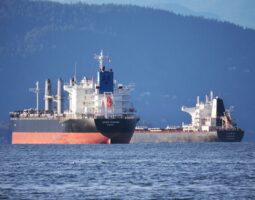Temporary Final Rule on Duty Deferral Announced
An executive order issued on April 18, 2020 states that certain estimated duties, taxes and fees can be temporarily postponed due to the national emergency concerning the COVID-19 (coronavirus) outbreak.
A decision from importers needs to be made as of 11:59 pm EDT on April 20, 2020. Please read the text thoroughly:
What does this mean?
Importers that qualify will be able to postpone paying duties that were due between March 1-April 30, 2020 for 90 days. The importers will only qualify if they can demonstrate financial hardship as a result of COVID-19. The deferral is temporary and limited to general customs duties. The deferral does not apply to special tariff measures such as the “steel and aluminum tariffs” (Section 232) and the “China tariffs” (Section 301).
Who qualifies?
A company seeking the deferral must demonstrate that its “operation must be fully or partially suspended during March or April 2020 due to orders from a competent governmental authority limiting commerce, travel, or group meetings because of COVID-19, and as a result of such suspension, the gross receipts of such importer for March 13-31, 2020 or April 2020 are less than 60 percent of the gross receipts for the comparable period in 2019.” The company need not file additional documentation with US-CBP to be eligible for this relief “but must maintain documentation as part of its books and records establishing that it meets the requirements for relief.”
Importers will not be required to demonstrate the 60% financial hardship immediately, but Scarbrough does expect that CBP will request documentation from those importers who decide to take advantage of the deferral, so the importers will need to be able to supply that upon request.
Stipulations
Importers will need to pay these duties back at the end of the 90 days from the required date of deposit. This executive order only temporarily postpones the deadline for payment. It does not waive duty payment.
This temporary postponement does not permit return of any deposits of estimated duties, taxes, and/or fees that have been paid. In other words, no refunds will be issued if an importer has already paid duties during this time frame.
This temporary postponement also does not apply to entries, or withdrawals from warehouse, subject to certain specified trade remedies, and any entry summary that includes merchandise subject to those trade remedies is not eligible under this rule. This merchandise includes:
- AD/CVD—antidumping duties (assessed pursuant to 19 U.S.C. 1673 et seq.) and countervailing duties (assessed pursuant to 19 U.S.C. 1671 et seq.)
- National Security Tariffs (e.g., steel and aluminum tariffs)—duties assessed pursuant to Section 232 of the Trade Expansion Act of 1962 (19 U.S.C. 1862)
- Safeguards—duties assessed pursuant to Section 201 of the Trade Act of 1974 (19 U.S.C. 2251 et seq.)
- China Tariffs—duties assessed pursuant to Section 301 of the Trade Act of 1974 (19 U.S.C. 2411 et seq.)
The temporary duty deadline also does not apply to any other debts and payments due to CBP, including but not limited to deadlines for the payment of bills for duties, taxes, fees, and interest determined to be due upon liquidation or reliquidation, deadlines for the payment of fees authorized pursuant to 19 U.S.C. 58c (except for merchandise processing fees and dutiable mail fees), or deadlines for the payment of any penalty or liquidated damages.
The following do not qualify for the deferment:
- entries in which the broker acts as the importer of record but does not meet the criteria for significant financial hardship,
- goods that benefit from the retroactive application of trade remedy exclusions after the time of entry,
- reconciliation entries, and
- entries subject to an AD or CV duty case with no rate yet established or with a zero rate applicable
The following do qualify for the deferment:
- goods excluded from trade remedy duties (provided the exclusion is in effect at the time of entry), and
- the cotton fee
Some other facts from Sandler, Travis, and Rosenberg:
- if the importer of record is a wholesaler that sells to retailers whose operations are suspended due to COVID-19, the wholesaler must meet the significant financial hardship criteria to be eligible for the deferment
- the time of entry, pursuant to 19 CFR 141.68, establishes when an entry for consumption is made, and the deferment only applies to goods entered or withdrawn from warehouse or foreign-trade zone for consumption in March or April
- filers using the deferment should not file any drawback claims, accelerated or non-accelerated, until payments have been properly made on the import entry(ies)
- CBP is adopting the definition of “gross receipts” used at 26 CFR 1.993-6
- a post-summary correction will not be allowed on an entry that has duty deferred until after the duty is paid
- it is up to the customs broker whether or not to secure from the importer documentation confirming that it meets the significant financial hardship criteria
- filers should not cancel entries previously filed to refile new entries to take advantage of the deferment
What if I want to move forward with this?
Please let your direct Scarbrough representative know as soon as possible and be able to show the following:
To qualify for this temporary postponement, an importer must demonstrate a significant financial hardship. An eligible importer’s operation must be fully or partially suspended during March or April 2020 due to orders from a competent governmental authority limiting commerce, travel, or group meetings because of COVID-19, and as a result of such suspension, the gross receipts of such importer for March 13-31, 2020 or April 2020 are less than 60 percent of the gross receipts for the comparable period in 2019. An eligible importer need not file additional documentation with CBP to be eligible for this relief but must maintain documentation as part of its books and records establishing that it meets the requirements for relief.
The Entry Process
Moving forward, Scarbrough would need to separate the general U.S. Customs entry from the Section 301 and Section 232 entries. Importers must notify Scarbrough if they would like us to split the entries. The entry summary with Section 232/301/ADD/CVD duties would need to be paid on the normal statement schedule (whether daily or monthly), and the entry summary with only standard duties and taxes would be paid on the deferred schedule.

